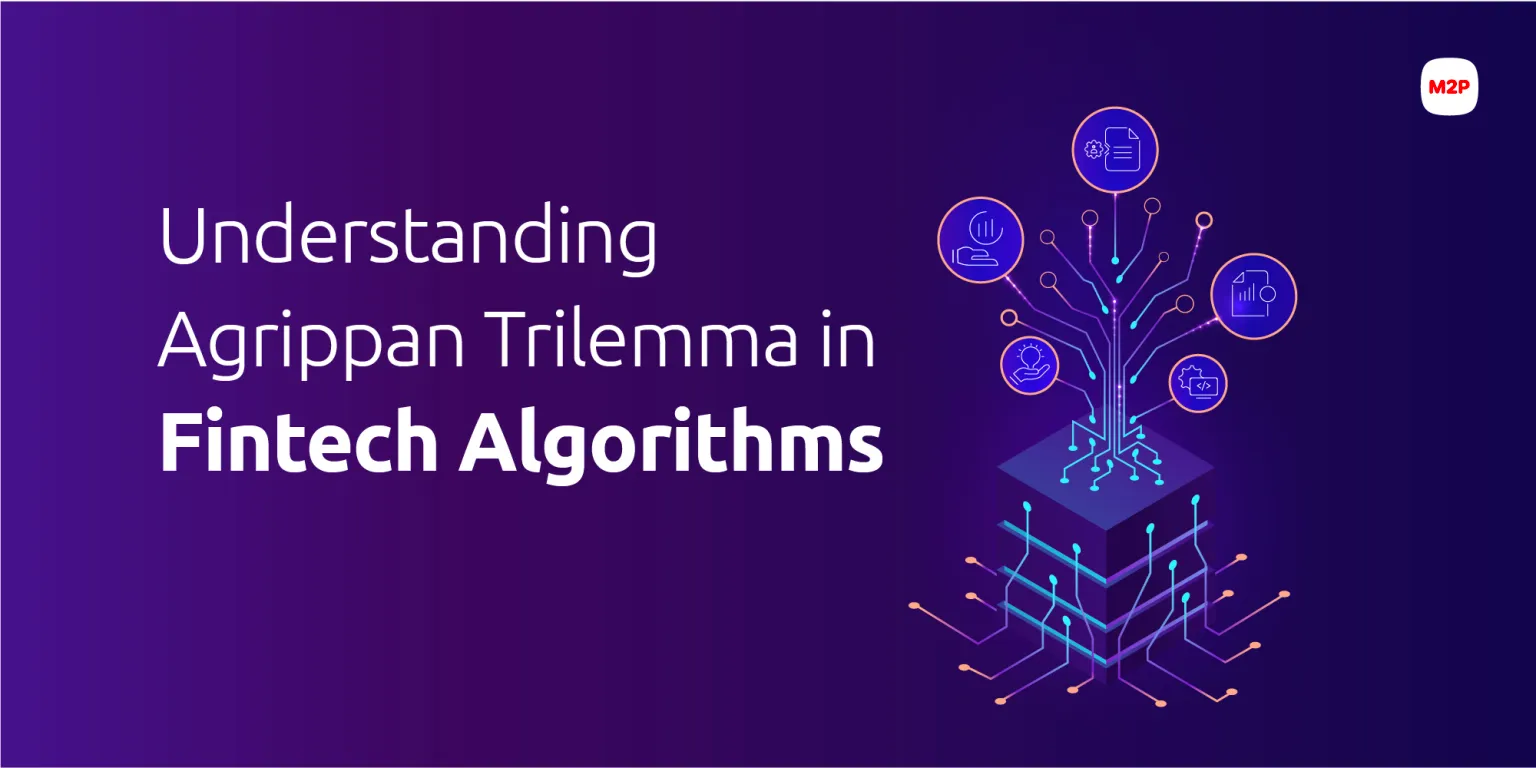
M2P Fintech
Fintech is evolving every day. That's why you need our newsletter! Get the latest fintech news, views, insights, directly to your inbox every fortnight for FREE!

As data-driven decision-making becomes ever more central to business strategy and innovation, the reliability of algorithmic processes is now a matter of critical importance.
Yet beneath every sophisticated algorithm, whether in banking, digital payment ecosystems, or technology-driven enterprises, lies a perennial philosophical challenge:
How do we truly justify the logic we depend on?
This question is elegantly captured by Agrippa’s Trilemma, a classic problem from epistemology that remains highly relevant to advanced technology and executive leadership. The Agrippa’s trilemma, named after the ancient philosophical skeptic Agrippa, describes a problem in epistemology concerning the justification of beliefs. The trilemma suggests that any justification for a belief ultimately faces one of three unsatisfactory alternatives:
1. Infinite Regress: Any justification requires another justification, ad infinitum
2. Circular Reasoning: The justification ends up relying on itself
3. Dogmatism: The justification stops at some foundational belief without further support
When applied to algorithms, Agrippa’s trilemma is useful in understanding challenges in ensuring the reliability and validity of computation and decision-making processes. Here are examples illustrating this concept:
Recursive algorithms depend on the idea of self-reduction until they get to a base case.
Suppose we have a recursive function for computing factorials:
Here's the regression: factorial(4) requires factorial(3), which requires factorial(2), and so forth, until factorial(0) is reached. The infinite regress concern arises if there is no sufficient base case, leading to potential issues like infinite loops or stack overflow.
For mutual recursion, consider functions A and B leading to circular dependency:
This mutual recursion can lead to circular reasoning if there is no base case or escape condition.
The base case in recursive functions often serves as the dogmatic stopping point.
The base case (factorial(0) = 1) is taken as an axiom without further justification.
Graph algorithms such as those finding the shortest paths can also illustrate this trilemma.
Algorithms like Dijkstra’s might continuously probe each node in complex graphs with edges cycling endlessly.
Consider detecting cycles in directed graphs using DFS or BFS. If detecting a cycle, you may end up referencing the same node repeatedly:
This function leverages direct circular checks.
Dogmatic assumptions could be embeddings in assumptions about node connectivity which are stops where justification ends without querying further.
Validating machine learning models embodies Agrippa’s trilemma profoundly.
Validation data might need re-training models or tuning hyperparameters which leads to iterative cycles that seemingly never hit finality.
Cross-validation can end up repeatedly validating a model on circular split of the dataset:
Cross-validation can embody circular reasoning if validation isn’t properly framed beyond immediate training/validation split cyclic rationale.
Stopping point often is assuming training/testing data split remains thoroughly representative. The trust in specific split as ground-truth can be seen as dogmatic.
Understanding Agrippan trilemma facilitates deeper insights into algorithm design, analysis, and ultimately, addressing the reliability issues inherent in computational processes. By applying this perspective, we can more easily spot hidden risks, challenge flawed reasoning, and steer clear of blind spots in decision‑making. This ability to question and refine our systems opens the door to higher standards for transparency, accountability, and trust in technology.
The future won’t be defined by the algorithms we build, but by how honestly and intelligently we interrogate them.
This thought leader article was authored by Hemachandar Ejamanam Chakravarthy, Director, Engineering, M2P
Subscribe to our newsletter and get the latest fintech news, views, and insights directly to your inbox.
Follow us on LinkedIn and Twitter for insightful fintech bytes curated for curious minds like you.